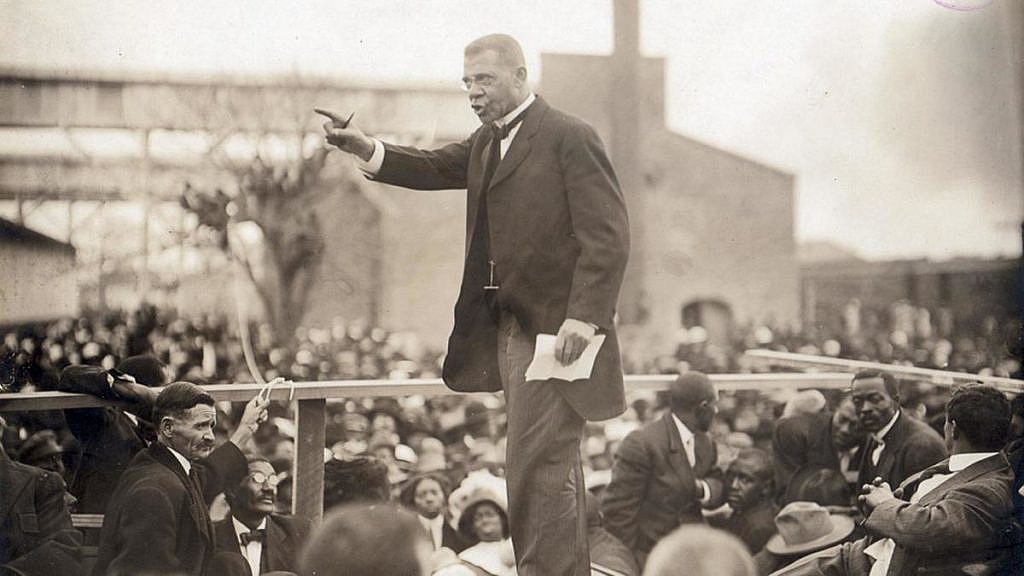What does the word “rhetoric” mean to you? Most people associate “rhetoric” with words that are big, showy, or empty, fake, and manipulative. Why would we want to teach our children how to use words to manipulate people? As an online teacher at Kepler Education who teaches Rhetoric, I’d like to submit that rhetoric is inescapable. We are surrounded by rhetoric. It’s not a question of whether our students are going to learn rhetoric–it’s a question of what kind of rhetoric.
The ancient Greek philosopher Socrates argued that we all use rhetoric, all of the time. In the Phaedrus (a philosophical dialogue written by Plato, Socrates’ student), Socrates challenges the view that rhetoric is just something that people use in the law court or in a government meeting. Instead, he claims that rhetoric is used “in private houses also, having to do with all matters, great as well as small, good and bad alike.”

Plato’s student Aristotle wrote the first philosophical analysis of rhetoric and defined it as, “the faculty of observing in any given case the available means of persuasion” (On Rhetoric, Book 2, Chapter 1). So, any time we try to persuade someone of something, we are using rhetoric. If your family is like ours, you might have some children who occasionally leave clothes, toys, and pretty much everything else on the floor. When you try to persuade them to pick up their mess, what means of persuasion do you use? Yelling, bribing, and threatening? Or reasoning gently with them, and presenting a list of reasons? Or perhaps a combination of both methods! Whatever method you use, you’re using rhetoric. What about when your kids want to do something, or go somewhere with their friends? What reasons do they present to you? What tone of voice do they use? We all use rhetoric, and we’re all exposed to rhetoric. So why not teach our children to use rhetoric well?
As with anything, rhetoric can be used for noble purposes, or for nefarious ones. As Aristotle observes: “And if it be objected that one who uses such power of speech unjustly might do great harm, that is a charge which may be made in common against all good things” (On Rhetoric I.1).
So, was Hitler a good speaker? Was he a good rhetorician? The Roman teacher of rhetoric Quintillian defined an orator as “a good man, skilled in speaking” (Institutio Oratoria XII.1.1). By this definition, Hitler was a skilled and persuasive speaker, but he was not a true rhetorician. He was a good speaker, but not a good man. Quintillian recognized the relationship between persuasion and ethics. We want our children and students to do the same.
So when we teach them rhetoric, we need to supplement it with large amounts of theology, philosophy, and history. We want to fill them with Truth, Goodness, and Beauty, so they can use words in ways that bless others–not simply manipulate and persuade them.
Here are three reasons why it’s important to teach our children the tools and skills of rhetoric:
- Learning rhetoric will help with any type of communication. Since communication is at the heart of most of human life, knowing how to communicate effectively will prepare our children for success in every field of work.
- Learning rhetoric will help our children to see through the lies and shallow techniques of persuasion that bombard us daily. Just as learning a martial art equips us for self-defense, knowing the strategies of rhetoric will help our children to not be suckers for clickbait and mindless followers of the next demagogue.
- Learning rhetoric will help our children to share the Gospel more effectively. They need to know the truth, but they also need to know how to “speak the truth in love” (Ephesians 4:15). Different situations call for different words. Should we answer a fool according to his folly, as Proverbs 26:5 tells us? Or not, as Proverbs also tells us (26:4). Using the tools of persuasion well calls for wisdom, not just a formula.
Although the ancient Greeks and Romans studied, practiced, and theorized about rhetoric, the words and actions of Jesus are our ultimate example and model of rhetoric. So, when we study rhetoric as Christians, we are really trying to model our speech and persuasion on that of Jesus Christ. That’s what sets apart our approach from the approach of other courses and curricula.
The textbook I use in my classes at Kepler Education, Fitting Words, defines rhetoric in this way. It is, “the art of persuasive speaking and writing; the goals of rhetoric are to teach men the truth, to move men to goodness, and to delight men with verbal beauty.” When we view rhetoric in this way, it’s obvious that rhetoric can be applied to just about anything. It is a powerful tool. Teaching our children to wield words in a way that glorifies God, and serves others (in love, but sometimes speaking hard truths that need to be heard) is well worth the effort and pays eternal dividends. Words are powerful. Let’s teach our children to use them well!
Interested in giving your student the tools of persuasion and communication? Check out my Rhetoric class at Kepler Education (now open for registrations for the 2122 school year)!
——-
Gregory Soderberg teaches online classes for 7th-12th graders at Kepler Education and is a Proctor for the Bible Mesh Institute. He has written for Intellectual Takeout and blogs regularly at The SoderBlog. He is completing a Ph.D. in historical theology at the Free University of Amsterdam.






1 comments On Why Teach Our Children Rhetoric?
Pingback: Why Teach Our Children Rhetoric? – The SoderBlog ()